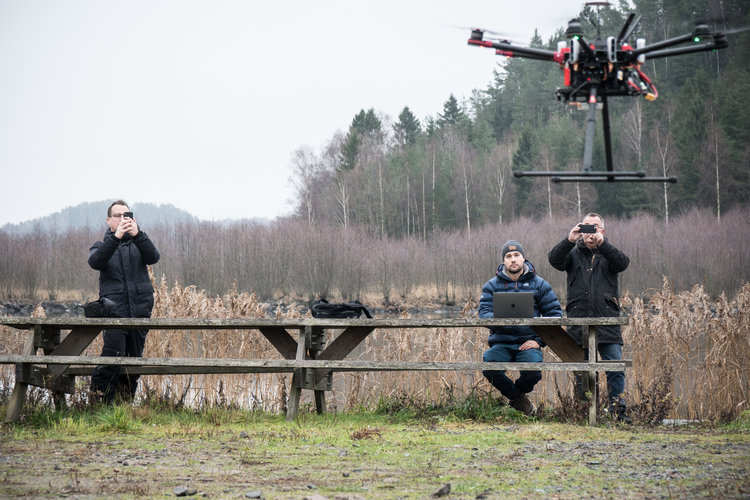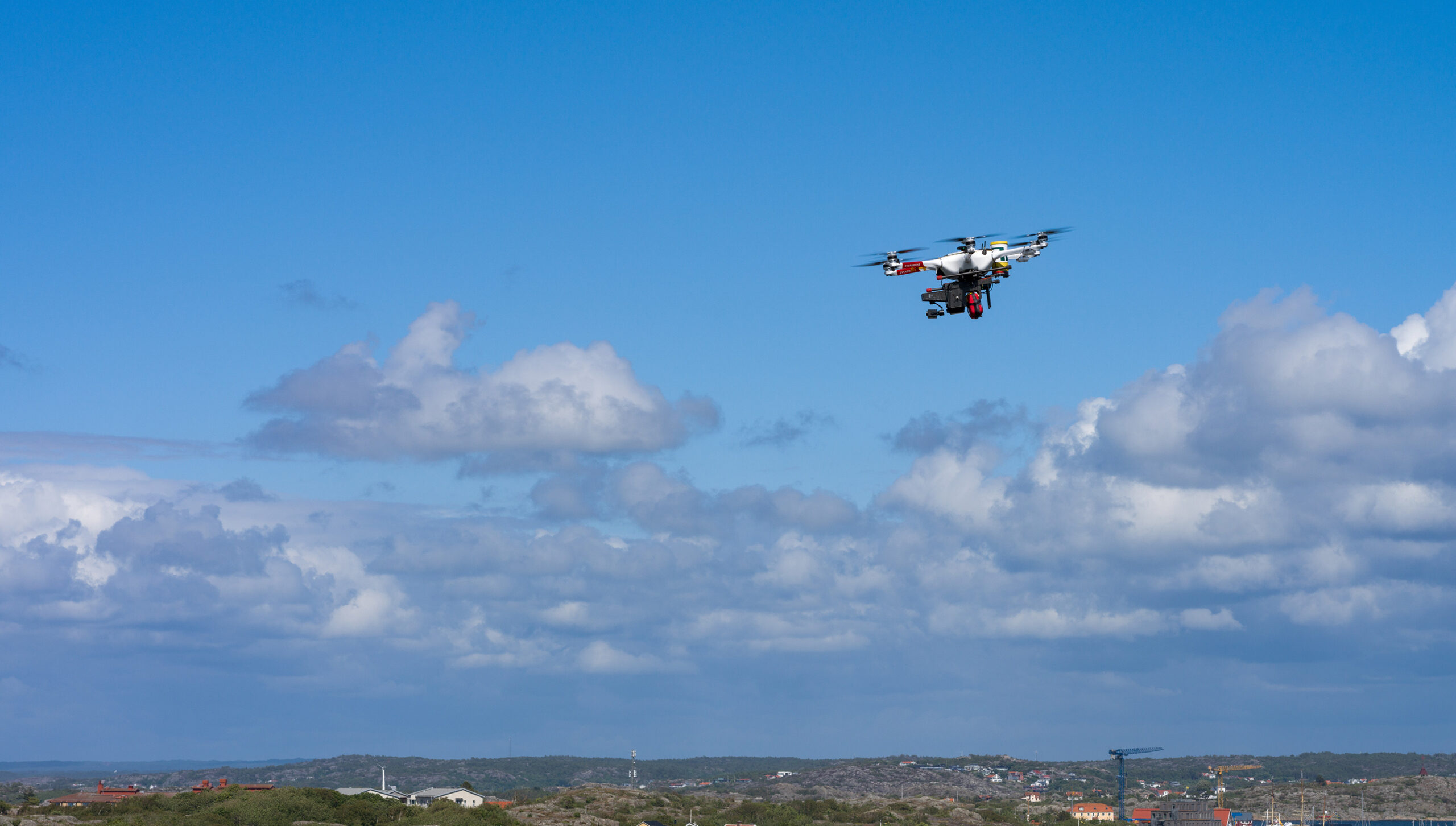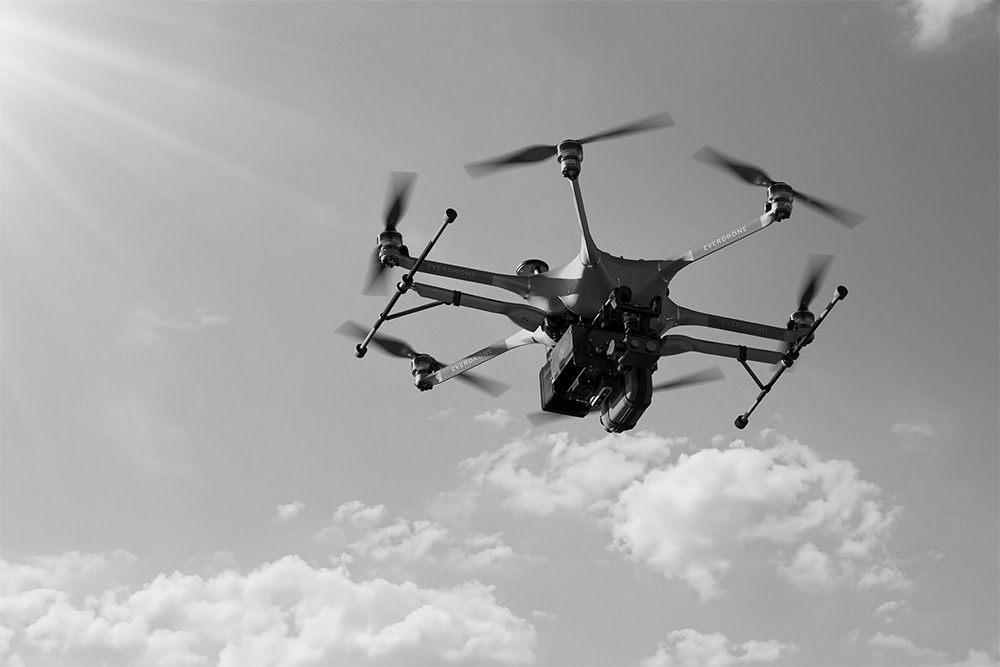Everdrone obtains unique permit for flying autonomous drones beyond visual line of sight (bvlos)
Press release 27.11.2018

Everdrone is the first company in Sweden to obtain a permit from the Swedish Transport Agency to carry out test flights beyond visual line of sight (BVLOS) with drones controlled and monitored over the mobile network. The permit and the underlying technical platform represent an important step towards the use of autonomous drones, for example by the emergency services and during life-critical healthcare transports.
Currently, all commercial drone flights are limited to operating within line of sight of the pilot. This is due to a lack of both regulations and a uniform standard regarding safety for unmanned flying vehicles. However, Gothenburg-based Everdrone, which develops software and sensor technology for autonomous drones, has recently obtained authorisation from the Swedish Transport Agency to carry out test flights beyond visual line of sight of the pilot.

The type 5C permit is the result of a year-long continuous dialogue between Everdrone and the Swedish Transport Agency. This has led to agreement on a test plan, failsafe systems, flight areas and follow-up and reporting. This is the first 5C permit to be granted for autonomous drones controlled and monitored over the mobile network. The permit is valid until May 2019 and applies to a segregated airspace north of Gothenburg.
“The flights we will be carrying out are primarily designed to test the robustness of the system as a whole. A long list of sub-systems interact on a vehicle like this, and they have to be tested under realistic conditions. There’s no better way to do this than to fly long distances in free airspace”, says Mats Sällström, Everdrone’s CEO.
“It’s a great feeling to be the first company in Sweden to obtain this type of permit”, Mats continues. “We can see a wide range of opportunities for self-steering drones in the future, not least for the emergency and healthcare services, and this feels like a major step towards achieving those opportunities. For us as a company, this is confirmation of the fact that we’re developing technology that contributes to increased safety, and hopefully it will also act as a push in the right direction for the drone industry as a whole.”
Everdrone’s aim is to develop software systems that facilitate safe use of autonomous drones. The work involves sensor systems for visual navigation, transponder technology to identify manned flying vehicles and advanced failsafe logic in the event of technical faults during a flight.
“By combining Everdrone’s knowledge of how to develop robust software with the aviation industry’s requirements for extremely high airworthiness, we have been able to lay the foundations of an error management system that’s tailor-made for autonomous drones”, says Maciek Drejak, Everdrone’s CTO.
The failsafe system the company has developed essentially consists of a large number of internal and external data points that are constantly monitored by the drone’s diagnostic tools – before take-off, in the air and after landing. If one of the data points indicates a fault, or if specific combinations of data points indicate faults, one or more safety measures are activated.

A crucial aspect of the system is its flexibility and scalability. The links between diagnosis and safety measures can easily be configured based on the type of flight and to adapt to future regulations. The system can also be adapted and improved as new hardware or external information systems are integrated.



